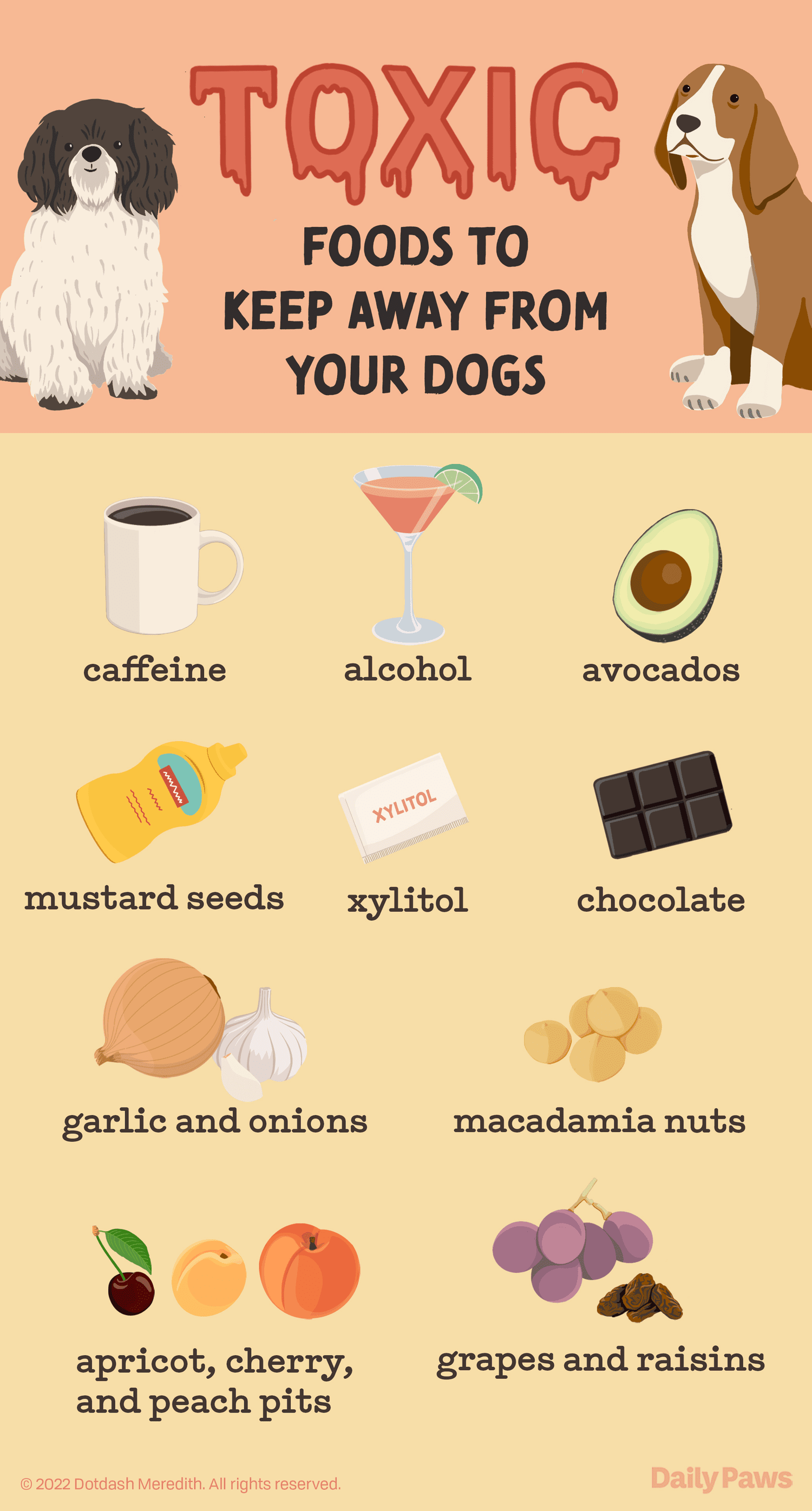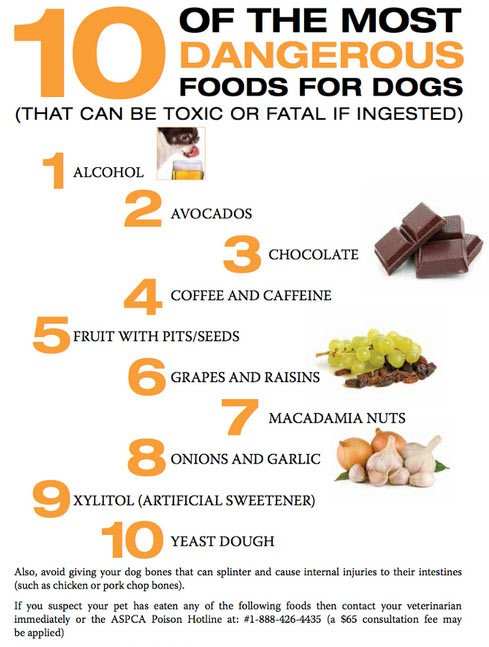As pet owners, we all want to ensure the health, happiness, and well-being of our furry friends. However, despite our best intentions, we may unknowingly be feeding our dogs foods that are potentially harmful and even toxic to them.
In this article, we will discuss the top 10 toxic foods for dogs, including common household items that you may not have realized could be dangerous to your canine companion. By being aware of these harmful foods, you can take steps to protect your pet and ensure they live a long and healthy life. So, let’s dive in and learn more about what foods to avoid giving to our beloved dogs.
There are certain human foods that can be toxic to dogs, including chocolate, caffeine, alcohol, grapes and raisins, onions and garlic, avocados, nuts, xylitol, and fatty foods. These foods can cause serious health issues such as vomiting, diarrhea, seizures, and even death. It’s important to keep these foods out of reach of your furry friends and to contact your veterinarian immediately if you suspect your dog has ingested any of them.

Top 10 Toxic Foods for Dogs: Know What to Avoid
As a responsible pet owner, you want to give your furry friend the best possible care. One way to do this is to be aware of the foods that can be harmful to your dog’s health. While some human foods are safe for dogs to consume, others can be toxic and even fatal. In this article, we’ll discuss the top 10 toxic foods for dogs and why you should avoid them.
1. Chocolate
Chocolate contains theobromine, a compound that can cause vomiting, diarrhea, and even death in dogs. The darker the chocolate, the higher the level of theobromine, so it’s important to keep all forms of chocolate away from your dog. If your dog ingests chocolate, seek veterinary care immediately.
2. Grapes and Raisins
Grapes and raisins can cause kidney failure in dogs, which can be fatal. Even small amounts of grapes or raisins can be dangerous, so it’s best to avoid them altogether. Symptoms of grape or raisin toxicity include vomiting, diarrhea, lethargy, and decreased appetite.
3. Onions and Garlic
Onions and garlic contain compounds that can damage a dog’s red blood cells, leading to anemia. Symptoms of onion or garlic toxicity include weakness, vomiting, diarrhea, and pale gums. It’s best to avoid giving your dog any foods that contain onion or garlic, including cooked dishes and sauces.
4. Avocado
Avocado contains persin, a toxin that can cause vomiting and diarrhea in dogs. While the flesh of the avocado is not toxic to dogs, the pit and skin can be a choking hazard. It’s best to keep avocados away from your dog to prevent any potential health problems.
5. Macadamia Nuts
Macadamia nuts can cause weakness, tremors, vomiting, and hyperthermia in dogs. While the exact mechanism of toxicity is unknown, it’s best to avoid giving your dog any foods that contain macadamia nuts.
6. Alcohol
Alcohol can cause vomiting, diarrhea, difficulty breathing, and even death in dogs. Even small amounts of alcohol can be dangerous, so it’s important to keep all alcoholic beverages away from your dog.
7. Xylitol
Xylitol is a sugar substitute that can cause hypoglycemia (low blood sugar), seizures, liver failure, and even death in dogs. Xylitol is commonly found in sugar-free gum, candy, and baked goods, so it’s important to check the label of any human food before giving it to your dog.
8. Caffeine
Caffeine can cause restlessness, rapid breathing, heart palpitations, muscle tremors, and even death in dogs. It’s important to keep all caffeinated beverages and foods away from your dog, including coffee, tea, chocolate, and energy drinks.
9. Cooked Bones
Cooked bones can splinter and cause blockages or tears in a dog’s digestive system. It’s best to avoid giving your dog any cooked bones, including chicken, turkey, and beef.
10. Fat Trimmings and Table Scraps
Fat trimmings and table scraps can cause pancreatitis in dogs, which can be a painful and life-threatening condition. It’s best to avoid giving your dog any human food, especially fatty meats and rich dishes.
In conclusion, knowing the top 10 toxic foods for dogs can help you keep your furry friend safe and healthy. It’s important to keep all human food out of your dog’s reach and to seek veterinary care immediately if your dog ingests something toxic. By being aware of the foods to avoid, you can provide your dog with the best possible care and enjoy many happy years together.
Frequently Asked Questions
As a dog owner, it’s important to be aware of the foods that can be toxic to your furry friend. Here are some of the most common questions about toxic foods for dogs.
What are the top 10 toxic foods for dogs?
There are several foods that can be toxic to dogs, but some of the most dangerous include:
1. Chocolate: Contains a chemical called theobromine, which can cause vomiting, diarrhea, seizures, and even death.
2. Grapes and raisins: Can cause kidney failure in dogs.
3. Onions and garlic: Can damage a dog’s red blood cells and cause anemia.
4. Avocado: Contains persin, which can cause vomiting and diarrhea.
5. Alcohol: Can cause vomiting, diarrhea, difficulty breathing, and even death.
6. Macadamia nuts: Can cause weakness, tremors, and hyperthermia in dogs.
7. Xylitol: An artificial sweetener found in sugar-free gum and other products, which can cause hypoglycemia (low blood sugar) and liver failure.
8. Cooked bones: Can splinter and cause blockages or tears in a dog’s digestive system.
9. Fat trimmings and bones: Can cause pancreatitis (inflammation of the pancreas) in dogs.
10. Dairy products: Can cause digestive upset and diarrhea in dogs who are lactose intolerant.

In conclusion, it is essential to be aware of the foods that can be toxic to dogs. While some might seem harmless, they can cause severe health issues and, in some cases, even lead to death. Among the top 10 toxic foods for dogs are chocolate, grapes and raisins, avocados, onions and garlic, and caffeine. It is crucial to keep these foods out of your pet’s reach and to seek immediate veterinary assistance if you suspect your dog has ingested any of them.
As a responsible pet owner, you should also be aware that some common human foods can be harmful to dogs. These include alcohol, fatty foods, and foods containing xylitol, a sugar substitute commonly found in sugar-free gum and candy. It is best to err on the side of caution and avoid feeding your dog any human food, especially if you are unsure if it is safe.
In conclusion, by keeping these foods out of your pet’s reach and being aware of the dangers of feeding them human food, you can help ensure that your furry friend stays healthy and happy. Remember, if you suspect your dog has ingested any toxic food, contact your veterinarian immediately for advice and treatment. Your dog’s health is in your hands, so be sure to take good care of them.
